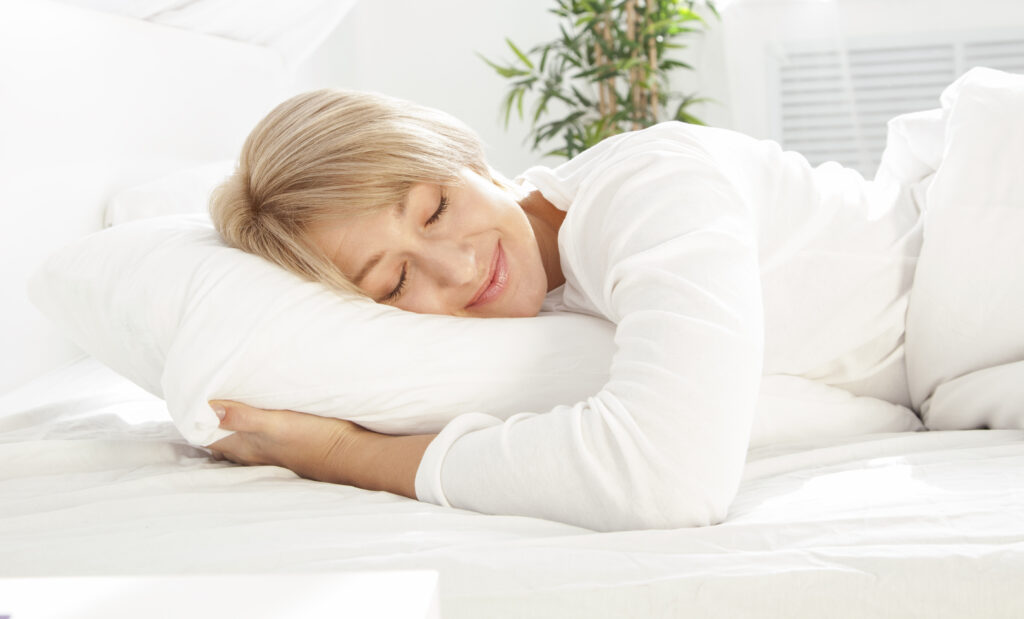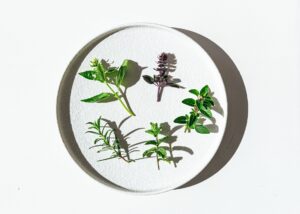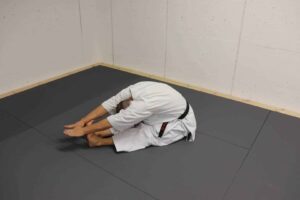Without water and without food we can survive a few days … But without sleep … you will quickly get sick
During sleep our body regenerates, newly learned things are consolidated and symptoms are balanced. In sleep we can relax and process stress. A healthy sleep is the basis for a day full of energy. Along with a balanced, healthy diet and exercise, restful sleep is the key to a physically, mentally and spiritually healthy life.
How much sleep is healthy?
The need for sleep varies from individual to individual and also depends on age. Newborns sleep 14 to 17 hours a day, adolescents sleep eight to ten hours and adults sleep seven to nine hours. More important than the duration of sleep for healthy sleep is the quality of sleep, because four to six hours of effective bedtime sleep are sufficient to be physically and mentally fit again the next day.
What happens when we sleep?
Falling asleep phase: During sleep, we go through different phases. The first phase is the falling asleep phase, in which we spend about ten percent of the night. It lasts about five to 30 minutes. Again, this is different for everyone. We are not consciously aware of the actual falling asleep, because the brain switches off consciousness.
Light sleep phase: After the falling asleep phase, we enter the light sleep phase, in which our eyes are still and our eyelids are closed. We are in this phase for half of the nightly sleep time. If there are external disturbances (noises, light), this can be disadvantageous for reaching the further sleep phases due to the still relatively light sleep.
Deep sleep phase: The body shuts down to a kind of energy-saving program. This means that the eyes are still, the muscles are relaxed, blood pressure drops, and breathing and heartbeat slow down. The deep sleep phase, which accounts for about one-fifth of the night’s rest, is most important for the body’s regeneration.
Dream phase: During the dream phase, we dream the longest and most intensively. It also accounts for one-fifth of sleep and is also called REM sleep or REM phase. During this time, we process what we have experienced during the day. REM stands for “rapid eye movements” and is so called because the eyes move back and forth quickly during this sleep phase. In addition to these rapid eye movements, the brain, heart and lungs are active; the muscles, on the other hand, are relaxed. We then move back into the light sleep phase, deep sleep phase and dream phase. This sequence of sleep phases is called the sleep cycle, of which humans go through several at night.
Sleep and dreams
Good sleep is not synonymous with long sleep, but means sleeping deeply for a short time. Good sleep is the result of vigorous physical and mental activity, while “awake”. While we sleep, we are always dreaming. But usually we don’t remember our dreams while “awake”. Nightmares, blurred dreams and fragmentary dreams are all signs of physical and mental restlessness. The frequent occurrence of such dreams is a sign of impending mental illness. When we have frequent nightmares, the same forces are also at work in the waking physical and mental realms. We are surrounded by baseless suspicions, imaginary enemies and other conceits that turn our lives into a battlefield. If we eat a macrobiotic diet, we will never be plagued by such dreams. From time to time, we may have a dream that comes true, that is fulfilled in reality, for example, when we are shown a new discovery in a dream, when we speak with the spirits of our ancestors, or are warned of a natural disaster, or receive a signpost as to where our path is leading us. So when we don’t have dreams – or only truth dreams – we see the true circumstances. We can learn how to remember our dreams. We can also learn how to interpret our dreams correctly.
Sleep disorders – lack of healthy sleep
Since we go through several sleep cycles at night with the individual sleep phases, “sleeping through the night” should be considered relatively. Why? If we wake up a few times at night, but then fall back asleep, this is not yet a sleep disorder and can be considered healthy sleep. Signs of a sleep disorder can be very long periods of falling asleep, waking up at night and lying awake for a long time. In addition, a distinction is made in sleep-related breathing disorders, which can also have a detrimental effect on healthy sleep. Often the first indication of sleep problems is a long sleep duration and a subjective feeling of non-restorative or poor sleep. That is, one sleeps relatively long and still does not feel refreshed in the morning. On the other hand, we can sleep for a relatively short time and be fully refreshed in the morning.
Causes: What keeps us awake? It varies a lot. It can be the current life circumstances. Stress, grief and noise are sleep killers, as are sugar, artificial sweeteners, caffeine, white flour products, meat (we absorb the suffering of animals), alcohol and drug use or shift work. Physical complaints such as pain, urinary urgency as well as hot flashes disturb sleep. Restlessness in the legs (restless legs), sleepwalking or teeth grinding also interfere with healthy sleep and are serious signs that our body, soul, mind balance is not in harmony.
Frequency: About one fifth of people are affected by a Sleep Disorder. Children are even less affected. Their consciousness is not yet as blatantly overloaded as that of adults. Older people in particular suffer from sleep disorders. Why? They have had a long time to get intoxicated. And one symptom is poor sleep quality.
Diagnosis: Diagnosis is about finding out what is causing the sleep disorder. Patients suffering from particularly severe sleep disorders are examined in sleep laboratories. Patients are monitored with measuring devices and recordings to find out about their sleep phases.
Treatment: Sleep disorders need to be looked at in a larger context when treating them. Sleeping pills should be taken only in emergencies. The addiction respectively dependence risk is too great. Good alternatives are CBD sleeping drops, melatonin and valerian or 5-HTP.
In the long term, one’s own habits must be reviewed and changed if necessary.
Sleep and health: tips for good and healthy sleep
It is important to understand that when it comes to sleep hygiene, you can already do a lot during the day for a good night’s sleep. But restful sleep needs even more conditions. During the night, all electrical devices such as cell phones, televisions and so on should be turned off in the bedroom, as the electromagnetic waves can disturb sleep. But if TV or music are part of the rituals of falling asleep, the devices should be at least two meters away from the body.
“As you make your bed, so you sleep,” says the popular saying. Back-friendly mattresses only give way where the pressure of the body on the base is greatest. In addition, natural materials such as cotton increase relaxation and well-being during sleep.
Make sure that your bedroom has the right climate for sleeping by airing the room well before going to bed. The ideal sleeping temperature is 16 to 18 degrees Celsius at a humidity of 50 percent. The bedroom must be sufficiently darkened, as light signals to the body that it is daytime and therefore the time to be awake. Watch your meals – don’t eat anything at least two hours before going to bed.
A hot bath in the evening can additionally promote relaxation and lead to a relaxed fall asleep.
Tip:
End each evening in gratitude. Every evening thank the Great Spirit for what we have experienced.







